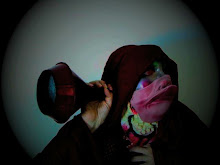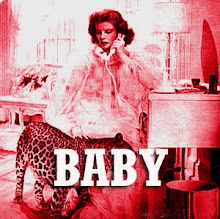Article in the New Statesman by Gabriel Josipovici... Modernism still matters
Perhaps they haven't, in the right light, on a good day Flarf could maybe sort of be seen as a new modernist project....? I have been thinking yesterday as I've been browsing and reading articles on Flarf and more than that (always) reading flarfish work itself ... that how like Stein they sound. Stein with her speech fun, blurring 'notions of the real. Stein was flarfing in 1910...
Who else I wonder, well Shakespeare if you read him like that ... not for the dead/dying king (hint hint) story but for the word play... the absorb-ion of 'other' text... but I guess Kafka and Ribalais, Beckett... hmmm needs full-time ruuummmination. Lucky I'm doing a ph-bloody-d!
how bout some definitions ... heres one on flarf from Schotts Vocab printed in the NY Times
quote...'
Flarf
A novel form of digitally-inspired poetry, often generated from the results of Internet search engines.
Reporting in The Wall Street Journal on the increasing recognition of “flarf ” poetry, Gautam Naik explained the origins of the trend:
According to Naik, flarf emerged in 2001 and has since “blossomed into an anything-goes style no longer restricted to Google searches – so long as it is novel and edgy.”
Its the blossoming that matters...
Reporting in The Wall Street Journal on the increasing recognition of “flarf ” poetry, Gautam Naik explained the origins of the trend:
Flarf is a creature of the electronic age. The flarf method typically involves using word combinations turned up in Google searches, and poems are often shared via email. When one poet penned a piece after Googling “peace” + “kitty,” another responded with a poem after searching “pizza” + “kitty.” A 2006 reading of it has been viewed more than 6,700 times on YouTube. It starts like this: “Kitty goes Postal/Wants Pizza…”
“Flarf is a hip, digital reaction to the kind of boring, genteel poetry” popular with everyday readers, says Marjorie Perloff, a poetry critic and professor emeritus of English at Stanford University. “You used to find it only in alternative spaces, but it has now moved into the art mainstream.”
Flarf verse has appeared in America’s pre-eminent poetry magazine, Poetry. Some 15 flarf books have been published, and there’s a 400-page anthology coming out later this year. The Walker Art Center in Minneapolis and the Whitney Museum in New York have held flarf readings. Two Manhattan theaters have showcased flarf poets.
In a sign that further establishes flarf’s literary cred, practitioners of a rival poetry movement called “conceptual poetry” are now taking on the flarfists, hoping to establish their approach as the true avant garde challenger to mainstream verse.
Its the blossoming that matters...














No comments:
Post a Comment